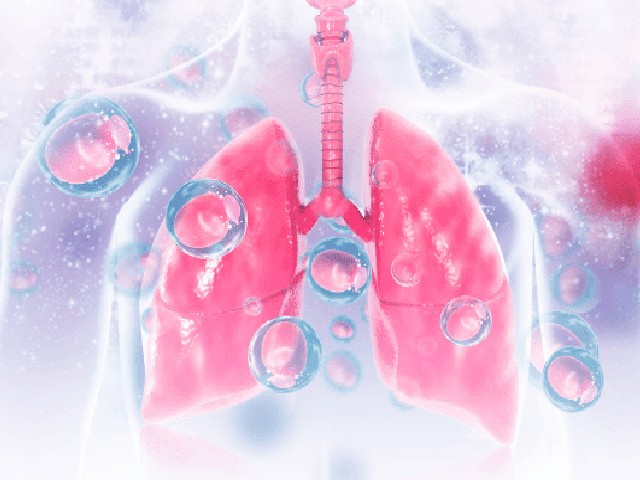Pneumonia

Pneumonia is an infection in the lungs that inflames air sacs in one or both lungs, which can fill with fluid. Pneumonia can be caused by a virus, a bacteria, or a fungi, but the most common is typically bacterial. You may catch pneumonia from others by inhaling droplets from a sneeze or cough. Your doctor at Miami Pulmonary Specialists will evaluate all symptoms for an accurate diagnosis and treatment plan.
What is Aspiration Pneumonia?
Aspiration pneumonia happens when bacteria are inhaled into the lungs from saliva, foods, or drinks. You’re most likely to get aspiration pneumonia if you have issues swallowing. You may also get aspiration pneumonia if you are affected by alcohol, illicit drugs, or certain medications
People who are already sick or who have weakened immune systems are more susceptible to aspiration pneumonia. Pneumonia creates an inflammation that affects the alveoli in your lungs. When these fill with fluid or pus, it will affect your ability to breathe properly. Symptoms of pneumonia may be mild, or can even become life-threatening.
Symptoms include:
- Coughing that produces phlegm
- Shortness of breath
- Chest pain
- Fever and chills
- Sweating
Symptoms may vary according to the severity of the pneumonia, your overall health condition, and your age.

Diagnosing Pneumonia
Initially, your physician will take your medical history, ask about your symptoms and when they first appeared. We will give you a physical examination which includes listening to your lungs. Our physicians will most likely want to take a chest x-ray.
Normally, the physicians at Miami Pulmonary Specialists can diagnose pneumonia using the information provided from your physical examination and chest x-ray. At times, the physicians may recommend further testing depending on your complication risks and the severity of your symptoms.
Tests for pneumonia include:
- A blood test to confirm their is an infection
- A sputum test may help to identify the reason of the infection
- A urine test can identify which bacteria that may be causing pneumonia
- Pulse oximetry can show if your lungs are transporting sufficient oxygen through your blood stream
- CT scan of the lungs can provide a clearer picture of your lung funtion
Another common test performed is called a bronchoscopy. During a bronchoscopy, your pulmonologist looks into your airways using a special camera that is guided using a flexible tube into your lungs. This test may be necessary if you have severe symptoms and are not responding to antibiotics.
Once Miami Pulmonary Specialists have the information required from your tests, we can suggest the best course of treatment for your pneumonia.
Miami Pulmonary Specialists may also recommend medication to relieve fever and pain, which you can typically get over the counter. Cough medicine can be helpful in calming a cough, which can help you rest more easily. However, sometimes coughing is necessary to help remove lung fluid.
Aspiration pneumonia treatment will be based on how severe your symptoms are, but normally, antibiotics are used to eliminate the infection. Our physicians may need to wait for test results before prescribing any antibiotics as certain bacteria are resistant to specific medications.
Treating Pneumonia at home
Since many cases of pneumonia can be successfully treated at home, it’s important to strictly follow your physician’s instructions closely. Make sure you take all prescribed medication and that you complete the entire course of antibiotics treatment.
It’s important to get lots of rest and to stay hydrated. Resist the urge to return to work or school too early, as this could result in a recurrence of the infection.
When does Pneumonia require hospital care?
If symptoms are very severe or you have other health-related issues, you may need to go to the hospital for treatment. This way, your heart rate and breathing can be closely monitored. During your hospital stay, you can also be receive antibiotics intravenously.
A Respiratory therapist can deliver specific medications into the lungs, and the specialists may show you certain breathing exercises to maximize your oxygen. If necessary, oxygen therapy will be given to maintain the oxygen level in your blood. You can be given oxygen either through a face mask or nasal cannula. Your physician will help you develop the right treatment plan for you.
How to prevent Pneumonia
Many instances of pneumonia are preventable by getting a vaccine. Getting vaccinated may help protect against bacterial pneumonia. It’s important to get annual flu vaccines since bacterial pneumonia can often develop like the flu.
Although vaccines won’t prevent against all cases, it’s more common that your illness will be much milder and shorter with fewer complication risks.
Additionally to getting to vaccinated, ensure you always wash your hands frequently with soap and warm water. Maintain a healthy lifestyle and eat plenty of fruits and vegetables to build a strong immune system. If you smoke, you should try your best to quit as soon as possible.
If you suspect you have Pneumonia, call Miami Pulmonary Specialists for pneumonia Treatment in Miami and the Keys. The treatments offered by Miami Pulmonary Specialists will depend on the type of pneumonia you have.

